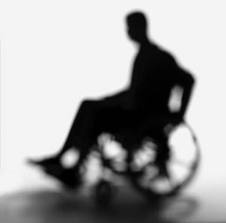 Special schools shouldn't be seen as cul-de-sac
Special schools shouldn't be seen as cul-de-sac
Robert M. Hensel once said, " I choose not to place 'DIS' in my ability. "
Disability exists everywhere in the world, and comes in various forms; intellectual impairment, hearing impairment, visual impairment and physical impairment, among others.
It may be present from birth or acquired during a person's lifetime. As true as the statement "the downfall of a man is not the end of his life," so is disability not the end of a person's capabilities. Thankfully, special need education was instituted to help the disabled in one way or the other, realise and use their talents conveniently.
Special need education is the practice of educating students with special educational needs in a way that addresses their individual differences and needs.
Special need schools are founded to help students with behavioral problems, learning impairments and physical impairments, to get quality education to make them beneficial and independent citizens.
Such schools create an environment where children with disability often socialise with a peer group with similar needs, so they don't feel different and find it easier. Some mainstream schools include special unit, for children with disability.
Special needs schools have highly experienced teachers and carefully tailored curricula to address the needs of each child.
Progress is consciously monitored and there are strong links with parents to equip the child with greater independence skills, thus less intervention is required.
*Deviant Perception about persons with disability.*
Disability is viewed as a social construction, then a medical reality with inference from the attitudinal and physical barriers erected by society.
"About 10% of the general population is thought to have an intellectual disability" Children's Hospital of Philadelphia Research Institute (2016).
Helen Adams Keller was an American author, activist, and lecturer. She was the first deaf/blind person to earn a Bachelor of Arts degree.
It is noteworthy that, she wasn't born blind nor deaf.
According to Stella Young, "My disability exists not because I use a wheelchair, but because the broader environment isn't accessible."
*The way forward*
"I have a strong sense that I have to educate people about disability" Oscar Pistorius
Persons with disability can contribute to development when they are free from physical, psychological, behavioral barriers and socioeconomic threats.
Special schools shouldn't be seen as cul-de-sac.
Children who are diagnosed with any form of disability should seek support at the appropriate institutions (Hospitals, Special schools and Special Units in mainstream schools, N.G.Os etc.)
There should be a coordinated national approach to identifying areas of such needs, and comprehensive human rights to educate the public, creating awareness of the various institutions where such needs are catered for and provided with skills.
Funding should be made available to assist students with disability, special schools and other institutions where training and supports are provided.
Special education instructors and caregivers should be motivated in any form necessary.
To avoid the gulag perception about persons with disability, stories addressing such needs should be included in our English Language and Religious and Moral Education textbooks, especially from the basic school informing that, we are all vulnerable and persons with such impairments shouldn't be disparaged or stigmatised.
I have started!
"Progress is impossible without change, & those who cannot change their minds cannot change anything." George B. Shaw